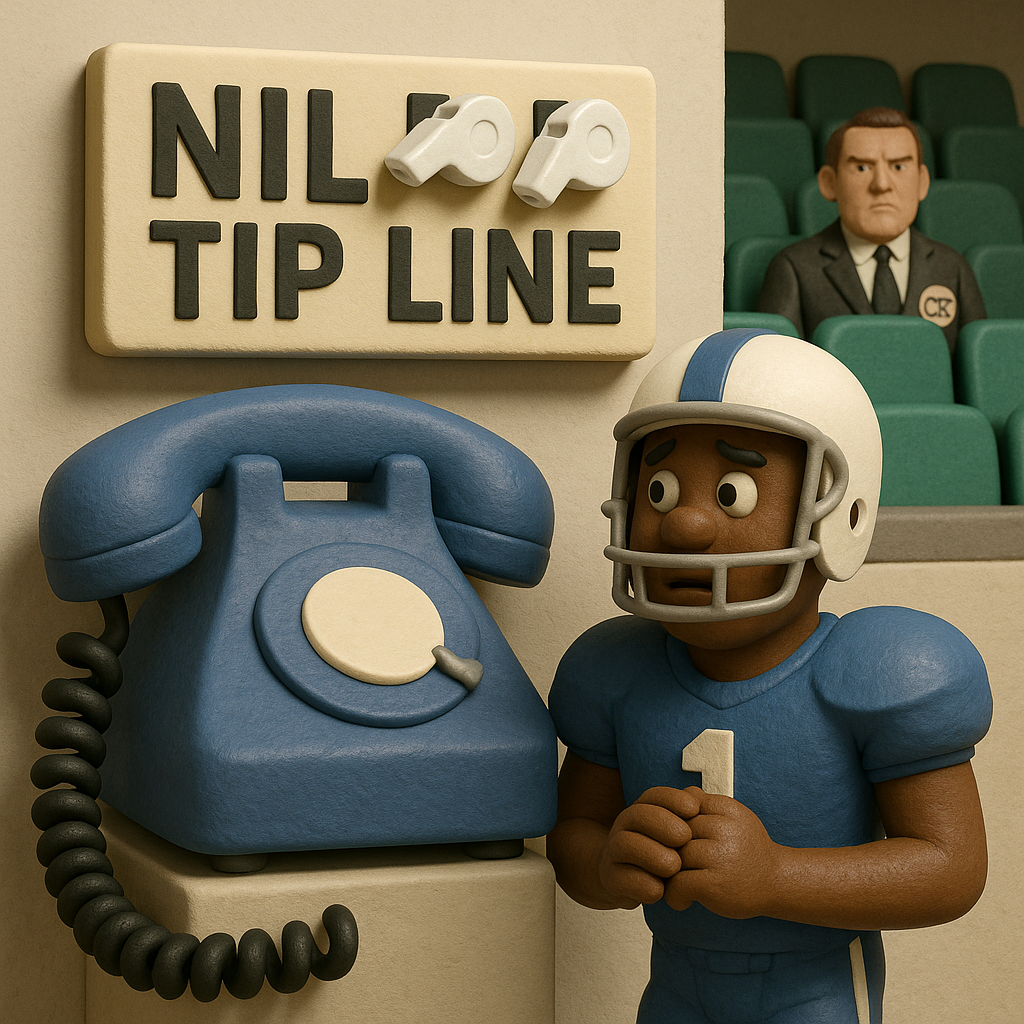
The NIL Tip Line — When Compliance Goes Confidential
The College Sports Commission (CSC) has launched the first confidential whistleblower hotline for Name, Image, and Likeness (NIL) deals, allowing athletes, staff, boosters, and fans to report suspected violations anonymously. As NIL deals and financial stakes grow, this tip line aims to strengthen oversight and accountability, protect athletes, and signal stricter regulation for boosters and collectives. The CSC reviews reports confidentially and can take actions such as investigating, freezing funds, or working with schools. This development marks a shift toward treating college sports as a regulated economic sector, with an emphasis on transparency, compliance, and due diligence for all parties involved.

The SAFE Act: When Congress Steps Into NIL
The NIL era has been loud, fast, and full of growing pains.
Now, Congress wants a say.
The proposed SAFE Act — short for Sports and Athletic Fairness and Equity Act — is the first serious attempt at a federal NIL law that could standardize how athletes, schools, and media partners handle money, contracts, and endorsements.

THE BOOSTER’S DILEMMA — WHEN LOYALTY MEETS LEGALITY
With the rise of Name, Image, and Likeness (NIL) regulations, the role of boosters in college sports has become both more transparent and more legally complex—boosters can now openly support athletes through collectives and endorsements, but any payment tied to recruiting or commitments remains a violation. The new landscape requires boosters to avoid promises to recruits, ensure all support is well-documented and channeled through legitimate means, and focus on genuine marketing value rather than incentives for enrollment. Regulatory scrutiny is higher than ever, and those unwilling to adapt to the new rules face significant legal risk, while those who act transparently can continue to support their teams within the bounds of the law.
